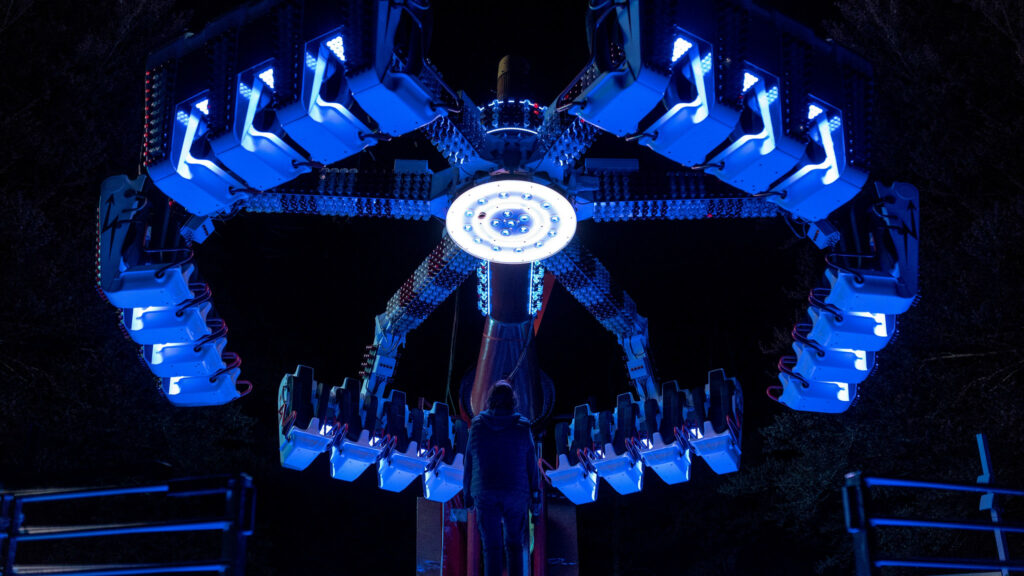Sundance Review: Jumbo
Written by Ian Thomas Malone, Posted in Blog, Movie Reviews, Pop Culture
For years, the discussion around gay marriage included plenty of preposterous claims such as allowing gay people to wed would lead to individuals wanting to marry their pets or their cars. Similar outlandishness follows the fight for transgender rights, as “jokes” about people wanting to identify as attack helicopters or penguins are made on a daily basis even to this day. In her debut feature Jumbo, Belgian director Zoé Wittock pursues a similar line of thinking in a surrealistic take on the meaning of love.
Jeanne (Noémie Merlant) is a creative young woman who’s happiest in her thoughts. She works the graveyard shift at a local amusement park and builds elaborate models in her free time. Her mother Margarette (Emmanuelle Bercot), a bartender, is troubled by Jeanne’s lack of drive, particularly with regard to her romantic life. Margarette herself enjoys a healthy sex life, especially with a new partner Hubert (Sam Louwyck).
A new attraction at the park catches Jeanne’s interest, much to the chagrin of her boss Marc (Bastien Bouillon), who pursues her romantically. Unfortunately for Marc, Jeanne’s heart belongs to a Tilt-A-Whirl ride, with its bright lights and mechanical spinning prowess. Dubbed “Jumbo” by Jeanne, she pays special attention to the ride during her shifts, making sure his lights are in tip-top shape.
Jumbo is the kind of film that works best when it skirts the lines of reality. Wittiock includes many beautiful sequences where Jeanne quite literally loses herself in the grandeur of Jumbo. The cinematography is spectacular, using light and color to convey meaning in the absence of words. Wittock appeals to all the senses in her efforts to convey a very peculiar kind of love.
Merlant is spectacular as Jeanne, capturing the essences of emotions foreign to many. She fully sells Jeanne’s emotion, as absolutely ridiculous as that sounds. Her performance sets the terms for the audience’s engagement with the narrative, presenting Jeanne not as someone who should be pitied, but rather appreciated for the way she holds her ground in the face of relentless opposition.
The supporting cast is also superb. Louwyck in particular stands out as Hubert, taking what could easily have been a throwaway role and transforming the character into someone with remarkable depth. As Margarette, Bercot puts forth an authentic portrayal of what any mother might struggle with in such a position, with happiness and reality existing in stark contrast to each other.
Perhaps the only point of critique for Jumbo is the absence of a broader sense of rationale behind Jeanne’s behavior. For a film with such an intimate scope, it’s understandable that there wasn’t much backstory, but there’s a lot of questions that the audience is left with by the end of the narrative. Film cannot present a complete portrait of a person’s life, but there’s so much to Jeanne lingering beneath the surface that supplies much food for thought afterward.
Jumbo takes an absurd premise and fully commits to presenting a heartfelt story. It’s easy to laugh at the idea of a person falling in love with a machine. Rather than make a mockery of the subject, Wittock finds beauty in the unexplainable.











